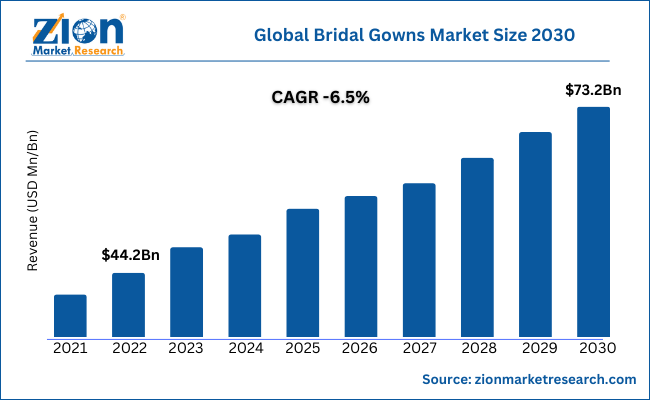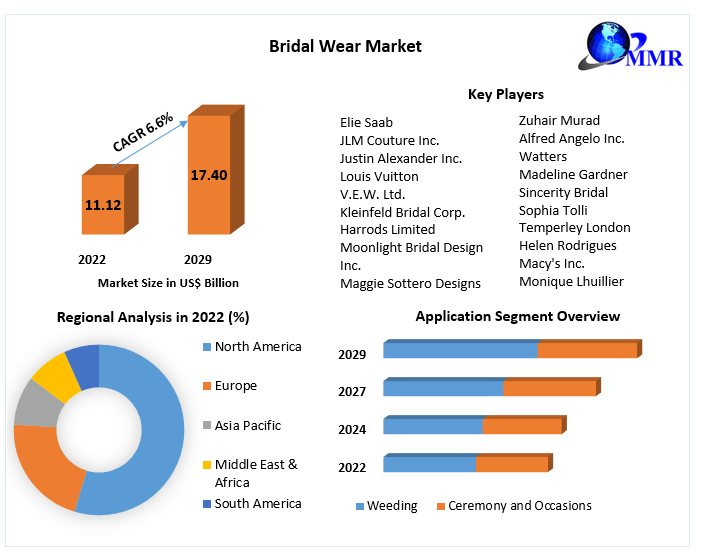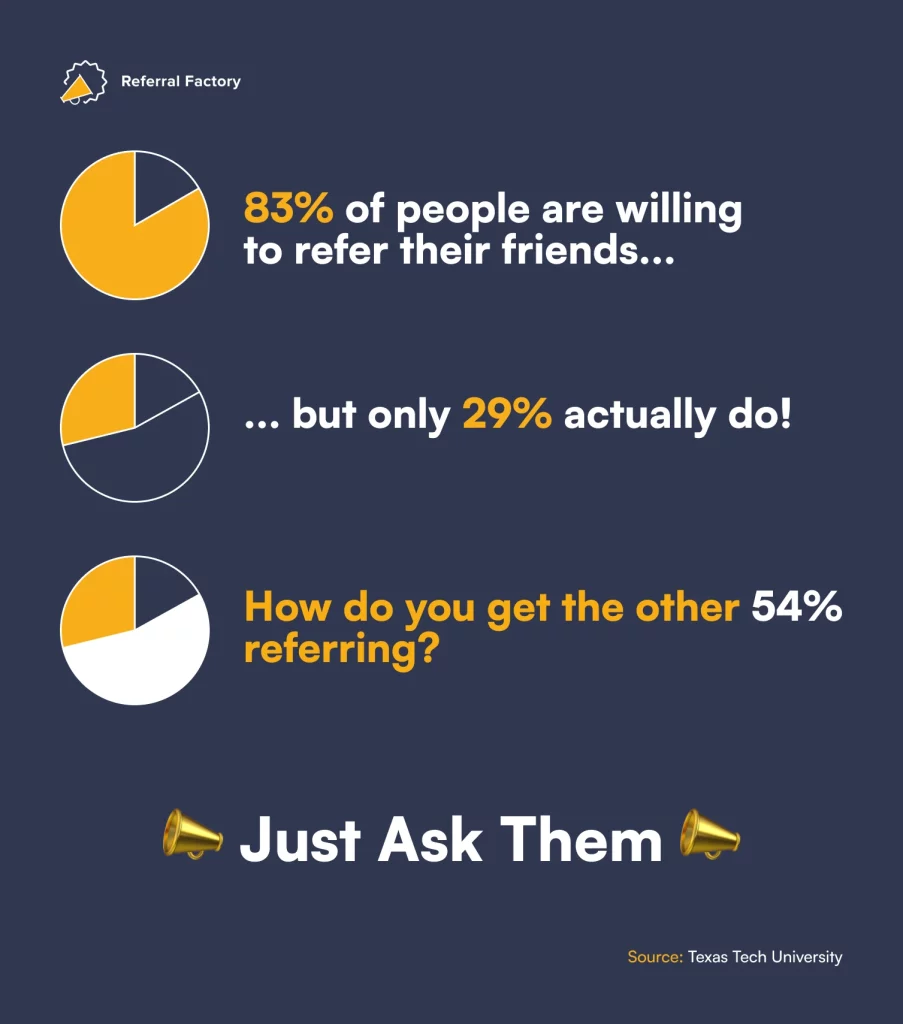Bridal shops are a lucrative market, earning over $44.2 billion alone in 2022. As the market expands, it’s expected to climb at a compound annual growth rate (CAGR) of 6.5% from 2023 to 2030. This means newcomers could be part of a $73.2 billion industry by 2030.

Offering personalized service and expertise in dress selection, bridal shops help make one of the most important purchases in a woman’s life. As more millennials reach marriage age, the customer base for wedding dresses should continue expanding over the next decade.
This guide will walk you through how to open a bridal shop. Topics include sourcing bridal gowns and bridesmaid dresses, registering an EIN, obtaining business insurance, forming a legal business entity, and more.
1. Conduct Bridal Shop Market Research
Market research is integral to opening your own bridal clothing business. it offers insight into your target market, trends in bridal magazines and wedding accessories, local market saturation, and other details of a successful bridal shop business.

Some information you’ll learn about bridal attire and becoming a bridal shop owner through market research include:
- States like Florida and Texas show particular promise for bridal shops given warmer climates and larger populations.
- Smaller states across New England and the Midwest still see over 100,000 weddings per year, enough to sustain bridal stores in less populated areas.
- Rising disposable income over the past decade also bodes well for the bridal industry.
- As millennials age into peak wedding years, their higher pay and broader acceptance of expensive weddings allow for pricier bridal purchases.
- The average wedding cost jumped from $25k in 2013 to nearly $34k by 2022.
- Higher budgets mean more money allotted for wedding dresses, especially for personalized, boutique shop options versus mass-market chains.
- Specialty bridal retailers face challenges from shifts in fashion preferences and competition.
- Some modern brides opt for more affordable options like rentals or separate versus traditional gowns.
- Direct-to-consumer online bridal retailers also increase price transparency and access to discount designer options.
- Brick-and-mortar bridal shops command 84.2% of industry revenue, benefitting from service, alterations, and brand familiarity.
Bridal retailers aiming to capture this market opportunity should focus on convenient locations, community networking, social media marketing, and differentiated plus-size inventory to attract multi-demographic clientele across a region. Consultative sales approaches build trust and loyalty among mothers/daughters and friends shopping together for this milestone event.
2. Analyze the Competition
Analyzing the competition is critical for anyone looking to open a bridal shop. This includes evaluating nearby brick-and-mortar bridal retailers as well as e-commerce and online competitors.

- Use tools like Google Maps to identify bridal shops located within a 20-mile radius.
- Visit stores in person to assess product assortment, price points, store atmosphere, and customer service quality.
- Take notes on strengths and weaknesses compared to your planned boutique.
- Look at the online presence of these bridal retailers as well.
- Evaluate their website design, user experience, and features like virtual try-ons or customization.
- Check their social media followers and engagement across platforms like Instagram where bridal content thrives.
- Search their brand handles to analyze digital word-of-mouth references.
- Check promotional strategies and shipping timelines which can sway customers.
- Consider running Google Shopping comparisons to evaluate market-wide price competitiveness on best-selling silhouettes and designers.
Analyzing all these data points provides quantitative awareness of competitive positioning as well as qualitative insights into customer preferences. Utilize SWOT analysis to differentiate your boutique’s planned offerings and identify potential partnerships that still serve brides in under-optimized areas like plus-size gown ranges. Adjust your business plan based on marketplace gaps or oversaturation.
3. Costs to Start a Bridal Shop Business
Based on over two decades of small business cost analysis, here is a detailed overview of expected start-up and ongoing expenses for launching a bridal shop.
Start-Up Costs
Registering a business name and establishing an LLC will run $100-$300 depending on state filing fees. Attaining a sales permit or tax ID costs an additional $50-$100 per permit type.
Leasing a retail space for the shop averages $20-$30 per sq. ft. in most regions. Plan for at least 1,500 sq. ft. to allow room for inventory, seating areas, and dressing rooms which equals a minimum of $30,000 for the first year of rent. Upgrades like customized lighting, flooring, displays, and storage can add another $15,000-$20,000.
Wedding dress inventory requires a significant upfront investment, especially for startup boutiques lacking supplier credit terms. Stock conservative best-seller styles in sizes 0-30+ across low, medium, and high price points – plan at least $60,000 for 100-150 initial gowns. Accessories like veils ($2,000) and jewelry ($1,500) add further inventory costs.
Salaried bridal consultants average $45,000 per year including commission benefits. Hire at least two experienced consultants in FTE roles for the first year ($90,000 total) to handle weekday and weekend appointment demand.
Shop furnishings like seating, mirrors, pedestals, racks, registers, and iPad stations will run $20,000. Marketing materials such as logo design, business cards, website, and signage equal another $5,000.
Total minimum start-up costs: $240,000
Ongoing Costs
Average monthly expenses include $10,000 for additional inventory purchases as old styles sell through and new releases arrive. Consultant payroll totals $7,500 per month for two FTEs. General monthly bridal clothing boutique expenses like utilities, insurance, and cleaning average $3,000. Credit card processing and transaction fees add further variable costs of 2-4% of monthly revenue on top of these fixed costs.
Annual expenses reach $50,000+ for large deliveries like new seasonal inventory buy-ins, furniture replacements, and store design refreshes ($25,000 every 2 years). Attending annual bridal market trade shows to stay atop trends is another $2,000 per year including travel.
Marketing drives recurring costs as well to fund seasonal trunk shows ($500 per event), digital ads ($300/month minimum), print ads ($100-500 per publication issue depending on circulation), and direct mail campaigns ($1000 per major mailing depending on list costs and postage for a 500-person list).
Analyzing both ongoing fixed and variable shop operations against reliable area revenue statistics provides realistic profitability estimates to size up the full business investment. Connecting with established local bridal retailers also gives invaluable first-hand data points before launch.
4. Form a Legal Business Entity
When establishing a legal business entity for a bridal shop, the structure options carry distinct tax, liability, and operational implications that owners must weigh. Most retail boutiques should operate as limited liability companies (LLCs).
Sole Proprietorship
Sole proprietorships only require basic registration documents, with business income and losses filing on personal tax returns. However, the owner’s assets remain fully liable for shop obligations. This risk is heightened in bridal retail where accepting customer gowns for alterations or holding high-value merch inventory is common. If sued, owners’ homes and savings could be forfeited which endangers personal assets.
Partnerships
Partnerships allow multiple owners to share control and equity. Yet similar unlimited liability persists on partners’ assets. Co-owning couples or friends may fall into conflicts on financial decisions as well. For bridal shops, partnership complexity often outweighs the capital or experience gains.
Limited Liability Company (LLC)
LLCs provide liability protection for owners’ assets while avoiding double business/personal taxation. Only the LLC entity itself is liable for debts and lawsuits tied to shop operations. Owners gain flexibility in profit distribution and can hold decision-making authority independent of equity stakes. LLC partnership capabilities also allow seamless onboarding of investors or heirs to the bridal business over time.
Corporation
Full business incorporation builds further owner protections but faces double taxation on corporate income and shareholder dividends. Extensive annual reporting requirements also apply. For specialty small retail like bridal boutiques, LLC status delivers the best blend of liability shields, operational control, and tax simplicity desired by most owners.
5. Register Your Business For Taxes
Bridal shops must obtain an Employer Identification Number (EIN) from the IRS for important tax and identification purposes tied to starting any business entity.
An EIN essentially functions as the Social Security Number for the LLC or corporation entity itself. Even if not hiring employees yet, an EIN is required to open necessary small business accounts and legally operate. Owners should apply for an EIN as soon as they form a legal business structure.
Thankfully obtaining an EIN takes only minutes online through the quick IRS application form. Applicants simply provide basic information like ownership structure, contact details, and reasoning for the EIN (such as “Starting Bridal Shop LLC”). The online tool walks through each question and instantly provides the EIN upon submitting payment.
The entire online EIN application process is free and secure. Users can print confirmation directly from the IRS website to retain for financial account applications. States often utilize the Federal EIN for local tax needs as well but require additional sales permit registration. These can be filed through sites although fees range from $10-$500 depending on locations.
Every bridal boutique must complete both state sales tax registration and the quick online EIN application through the IRS before selling any products or services. With these identifications set, bank accounts can open to receive vendor payments, process payroll, and sustain daily retail operations smoothly.
6. Setup Your Accounting
Proper financial tracking and accounting are crucial for bridal shop owners to sustain profitability and avoid IRS issues. With significant opening inventory investments and fluctuating seasonal demand, leveraging software and external accountants protects boutiques.
Open a Business Bank Account
After registering a formal LLC, owners should immediately establish separate banking just for bridal shop funds. Keeping these finances distinct from personal checking simplifies recording transactions tied to store operations. Funnel all dress supplier payments, consultant payroll, customer deposits, and sales revenue through this dedicated small business account.
Accounting Software
Incorporate cloud-based accounting software like QuickBooks to automatically codify every shop payment. QuickBooks seamlessly syncs with bank/credit card accounts to log income and expenses in real-time. This saves hours manually inputting line items while minimizing human data entry errors.
Hire an Accountant
Working with an external bookkeeping accountant then maximizes financial insights from QuickBooks records. These experts reconcile accounts, ensure accurate inventory valuation, and identify potential tax deductions unique to retail. Expect costs between $200-$500 monthly for comprehensive bookkeeping services.
7. Obtain Licenses and Permits
Before welcoming any customers, new bridal shop owners must ensure proper business licensing to operate legally and avoid steep penalties. Find federal license information through the U.S. Small Business Administration. The SBA also offers a local search tool for state and city requirements.
For example, Florida issues Business Tax Receipts for all in-store merchandise sales through the Department of Business and Professional Regulation. Yearly Recertification confirms liability coverage and workers’ compensation insurance minimums are active. Fees range from $50-$200 based on county and shop employee size.
If selling recognized designer gown brands under wholesale contracts, those distribution agreements may dictate special prestige permits. Legitimizing boutique authorization to carry exclusive styles avoids illegal knockoffs seeping into inventory.
For trying, fitting, and altering wedding dresses in-house, seamstress licensing ensures proper training. Florida’s Department Of Agriculture requires all alterations professionals to complete a garment repair exam every two years and pass a related course plus a background check. Testing fees total $75 with $200 for biannual practice licensing.
Zoning classifications must align for pure retail usage with no other businesses co-located in that commercial property. Many bridal shops reside in designated Regional or Community business zones that permit public store access. Home businesses or mixed-use buildings may face restrictions.
Finally check all liability insurance levels, building codes dictating necessary bathrooms per occupancy maximums, ADA accessibility requirements, and alarm/sprinkler mandates. While exhausting, properly certifying all health, safety, and compliance criteria reduces financial risk and community friction once open.
8. Get Business Insurance
Operating a bridal shop carries numerous risks that make business insurance essential from day one. Beyond safeguarding the company itself, proper coverage protects the significant personal assets that owners invest.
The core General Liability policy defends against two frequent bridal exposures – customer injury claims and accusations of gown damage during shop possession. If a client slips on loose beads or tears delicate lace moving in a dress, that $5000 Vera Wang gown expects full replacement. Lawsuits could pursue much greater settlements without liability limits.
Employee theft poses another vulnerability given the value of salable inventory. Dishonest workers could gradually steal designer gowns or accessories and fence through unscrupulous resale conduits. Inventory insurance covers such shrinkage from dishonest staff misconduct.
For small businesses like bridal boutiques, the owner’s home often collateralizes loans supporting store buildouts or expensive designer dress investments early on. Lacking coverage for a massive flood or fire could sink young companies under the financial burden of replacing assets and remaining operational. Special business owner policies help shield residential property when professional retail locations face disasters.
Gaining insurance guidance from local providers makes the buying process straightforward. Agents assess shop size, location, inventory, and operations to tailor affordable policies protecting assets. Small business insurance costs approximately $100 per month for tiered coverage between $500,000 to $3 million and easily integrates with existing bank payments.
9. Create an Office Space
Bridal shop owners juggle myriad business functions like buying, alterations, marketing, and financials where an administrative office proves useful over relying solely on the retail floor. Dedicated backroom space allows quieter tasks despite customer traffic out front.
Coworking Office
Coworking spaces like WeWork allow affordable office rentals on flexible terms starting around $300 monthly. Bridal owners skip utilities or wifi fees splitting those among entrepreneurial peers. Coworking lounges and conference rooms make meetings impossible when working from home. However, security risks persist for handling high-value designer inventory.
Retail Office
Premium retail spaces should allocate private rear offices. Plan 500+ square feet to seat staff, store gown samples, and handle seamstress alterations securely onsite. On average $30 per sq. ft. ups total rent but integrates everything bridal operations require. Landlords may also cut deals on office buildouts to win longer boutique leases.
Workshop Buildings
Once launched, the most successful bridal shops buy standalone workshop buildings for mass gown storage, additional dressing suites, and overflow alteration staff. Though expensive at $1 million, custom ateliers prevent turning away peak demand like 500-bride weekends. High-service brides willingly pay premiums to stores fully dedicated to unrushed wedding dress excellence year-round.
10. Source Your Equipment
Launching a bridal shop requires extensive design elements and equipment beyond just filling racks with gorgeous gowns. Strategic owners source furnishings and supplies from a mix of new purchases, consignment deals, and rental partnerships to conserve startup capital for inventory splurges on in-demand designers.
Buy New
Invest in quality display materials that withstand heavy customer handling during crunch weekends. New mannequins, pedestals, mirrors, and shelving supply contemporary boutique style for $15,000. Timeless couches ($3000) ease family members during long appointments. Shop for durable registry systems (from $2000) tailored to seamless bridal sales.
Buy Used
Facebook Marketplace and Craigslist advertise deals from bridal salons upgrading interiors. Score discounted wood benches or vintage props linking regional history at 25-50% off retail. Have new slipcovers or paint refresh dated furniture. Existing shops also liquidate extra sample stocks after annual collection retirements.
Rent
Angel-investor sites like Fund&Grow connect entrepreneurs with owners earning income from assets rather than selling them. This facilitates short-term leasing of high-end jewelry displays ($500/month), decorative pieces, or designer gown samples from other bridal shops nationally. Flexible terms allow testing unique inventory without long-term commitments.
11. Establish Your Brand Assets
Establishing a distinctive brand identity helps emerging bridal shops captivate local brides through memorable service experiences and stand apart from department stores or discount chains competing primarily on price. Investing in core brand assets legitimizes businesses.
Get a Business Phone Number
Cloud-based systems like RingCentral provide call management tools overtop any device while projecting a professional image to callers. Route inquiries directly to employee mobile apps during gown try-ons or seamstress meetings maximizing customer attentiveness.
Design a Logo
A polished logo visually encapsulates the boutique’s identity and guides complementary visual branding across websites, signage, and marketing materials. Online logo creators like Looka swiftly generate hundreds of on-brand logo options combining chosen imagery, color palettes, and fonts.
Print Business Cards
Print crisp logo designs onto cardstock for staff business cards to distribute during regional networking events or bridal shows. Cards enable quick postal follow-ups with prospective brides. Vistaprint’s inexpensive printing reaches mailboxes faster driving web traffic and consult bookings.
Buy a Domain Name
Purchase an intuitive “.com” domain reflecting the boutique brand name for discoverability across Google search and social channels. Sites like Namecheap facilitate quick domain registration for under $20 annually.
Design a Website
E-commerce website builders like Wix make launching information-rich bridal sites effortless for tech novices through 500+ designer templates. Those open to spending $300 can also hire web developers on Fiverr to construct customizable online stores showcasing gown galleries, real wedding photos, and seamstress skill sets for influencing local shopper decisions.
12. Join Associations and Groups
Beyond digital marketing, bridal boutiques should embed themselves locally through regional industry associations, small business meetups, and niche online communities. Surrounding bridal experts share invaluable insights on managing gown inventory and marketing through wedding vendor partnerships.
Local Associations
The National Bridal Retailers Association with both national designer partners and boutique-level members collaborates with business owners across the country. They cover floral forecasts, photographer panel advice, and reception pricing strategies from 50 wedding pros.
Local Meetups
Sites like Meetup index regular local meetups where bridal shop owners gain ground-level wedding vendor connections for referral partnerships around cakes, coordinators, and venue rentals. Meetups also foster community support and shared struggles as entrepreneurs.
Facebook Groups
Regional Facebook Groups like Arizona Luxury Wedding Vendors & Brides To Be! and KC Metro Wedding/Dance Dresses Swap ‘n’ Shop connect you to local brides and vendors. Talk with others in the bridal store industry for tips on marketing, pricing, and accessorizing.
13. How to Market a Bridal Shop Business
Marketing drives consistent leads to support daily bridal shop operations between the spring/summer rush. Both digital and real-world tactics raise local visibility, nurture customer loyalty, and optimize consulting hour utilization year-round.

Referral Marketing
Engage recent brides on platforms they already use. Request social media testimonials or product reviews on Instagram, Facebook, and boutique dating sites. Offer 10% discounts on veil purchases for any girlfriends they drive to book try-on appointments. Growing through happy customer word-of-mouth sets independent shops apart from department stores competing solely on gown brand ad budgets.
Digital Marketing
Digital channels expand reach across geographies from existing social followings.
- Run Google Shopping ads highlighting top designers searchable by price, size, and silhouette.
- Retarget website visitors with Instagram feed ads of seasonal dresses in their viewed styles.
- Capture emails at in-store registries to nurture styling content and sales alerts leading up to their wedding dates.
Traditional Marketing
For the intimate, high-value bridal industry, traditional media still influences local shoppers.
- Primary markets warrant billboards on commuter corridors with wedding imagery and custom taglines.
- Partner with campus reps at nearby universities to orchestrate pop-up boutiques and dress giveaways building shop familiarity with students.
- Advertise summer sample sales through wedding magazines and metro radio driving walk-in traffic to clear last year’s inventory.
- Attend area bridal shows to meet prospective brides face-to-face while scouting potential venues, florists, and bakery partners for bundling deals.
Ultimately, balancing digital efficiency with tangible community connections piques interest across mediums to sustain bridal shops despite e-commerce’s dominance over general retail.
14. Focus on the Customer
Bridal shops live or die based on customer service excellence able to turn one-time brides into repeat clients down the road for other formal events. Unlike e-commerce transactions, emotional in-store dress consultations require patience and empathy at every step while managing entire entourages – not just the bride herself.
Seamstresses ensure flawless gown alterations meeting unrealistic body expectations across fluctuating diets or exercise regimens. Consultants artfully handle disappointed mothers or budget-concerned fathers to preserve sales. Owners resolve issues when orders ship late from designers or colors appear slightly off.
Delivering exceptional service creates genuine enthusiasm permeating networks of friends also entering engagements. The hands-on process bonds clients to boutiques through a vulnerability-filled yet exciting life milestone.
One overjoyed bride can easily refer a dozen friends within a year to a trustworthy shop elevating the process through personalized care – and gossip just as quickly spreads about subpar experiences eroding hard-built reputations. In bridal retail, goodwill drives revenue.
